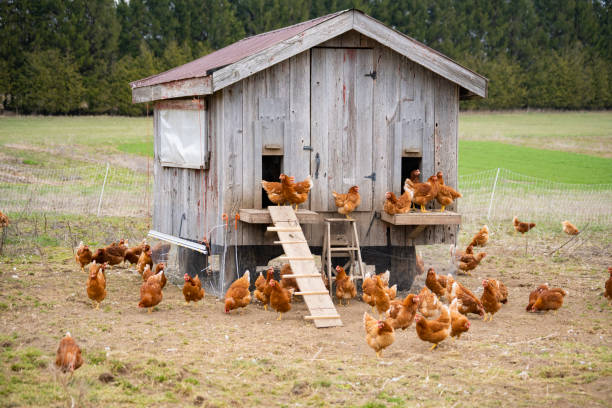Summary
Original form – “rule the roast”: This referred to being in control of the kitchen, where roast meat was a central part of meals. It symbolized authority in a crucial domestic setting. Shift to “rule the roost”: By the 18th century, the phrase evolved. People began associating the idea of dominance with a rooster controlling the henhouse, a more relatable metaphor for everyday life than kitchen hierarchy. This change is an example of folk etymology, where a term is altered to something more familiar and logical, making the language more accessible and engaging.
So, the idiom moved from culinary dominance to barnyard dominance. Still, the meaning—being the one in charge—remained the same, showing the continuity of language and its relevance across different contexts and times.
Here are some examples of how “rule the roost” is commonly used today:
· In a family context
“Ever since Grandma moved in, she’s been ruling the roost in the kitchen.”
· In a workplace setting
“After the merger, the new CEO clearly rules the roost at headquarters.”
· In sports
“The defending champions still rule the roost in the league this season.”
· In politics or leadership
“For decades, that party ruled the roost in local government.”
· In casual conversation
“Don’t let him fool you—his cat really rules the roost at home.”
Here’s an expanded list of 20+ idioms with their meanings and origins:
1 Rule the Roost
-
Meaning: To be in charge or dominate.
-
Origin: Evolved from “rule the roast” (1500s), later associated with a rooster ruling the henhouse.
. Top Dog
-
Meaning: The leader or most important person.
-
Origin: From 19th-century dogfighting; the winning dog was literally on top.
3. Cock of the Walk
-
Meaning: A boastful, dominant person.
-
Origin: Refers to a rooster strutting in a barnyard.
4. Let the Cat Out of the Bag
-
Meaning: Reveal a secret.
-
Origin: Medieval markets where cats were substituted for piglets in sacks.
5. Wild Goose Chase
-
Meaning: A futile pursuit.
-
Origin: Shakespeare’s Romeo and Juliet (1592), describing a horse race.
6. White Elephant
-
Meaning: A costly but useless possession.
-
Origin: In Southeast Asia, sacred white elephants were considered expensive burdens.
7 Red Herring
-
Meaning: A distraction from the main issue.
-
Origin: Smoked herring used to train or mislead hunting dogs.
. Barking Up the Wrong Tree
-
Meaning: Pursuing a mistaken course.
-
Origin: Hunting dogs barking at the wrong tree.
9. Dark Horse
-
Meaning: An unexpected winner.
-
Origin: 19th-century horse racing term.
10. Cat Got Your Tongue
-
Meaning: Why are you silent?
-
Origin: Possibly from the cat-o’-nine-tails whip or ancient punishments.
11 Kill Two Birds with One Stone
-
Meaning: Achieve two goals with one effort.
-
Origin: Ancient hunting practices.
1 . Cry Over Spilled Milk
-
Meaning: Regret something that can’t be changed.
-
Origin: 17th-century proverb about wasted milk.
3 Bite the Bullet
-
Meaning: Face a painful situation bravely.
-
Origin: Soldiers biting bullets during surgery without anesthesia.
14. Break the Ice
-
Meaning: Start a conversation or activity.
-
Origin: Icebreaker ships clearing paths for trade.
15. Spill the Beans
-
Meaning: Reveal a secret.
-
Origin: Ancient Greek voting with beans; spilling them exposed the results.
16. Kick the Bucket
-
Meaning: To die.
-
Origin: Possibly from animals being slaughtered while hanging from a beam called a “bucket.”
17. Butter Someone Up
-
Meaning: To flatter someone to obtain a favor.
-
Origin: Ancient Indian custom of throwing butter balls at statues of gods.
18. Under the Weather
-
Meaning: Feeling ill.
-
Origin: Nautical term for sailors sent below deck during storms.
19. Mad as a Hatter
-
Meaning: Completely crazy.
-
Origin: Mercury poisoning among 18th-century hat makers.
20 Pull All the Stops Out
-
Meaning: Do everything possible.
-
Origin: From organ music, where stops control airflow to pipes.
2 . Fly Off the Handle
-
Meaning: Lose temper suddenly.
-
Origin: 19th-century reference to axe heads flying off handles.
